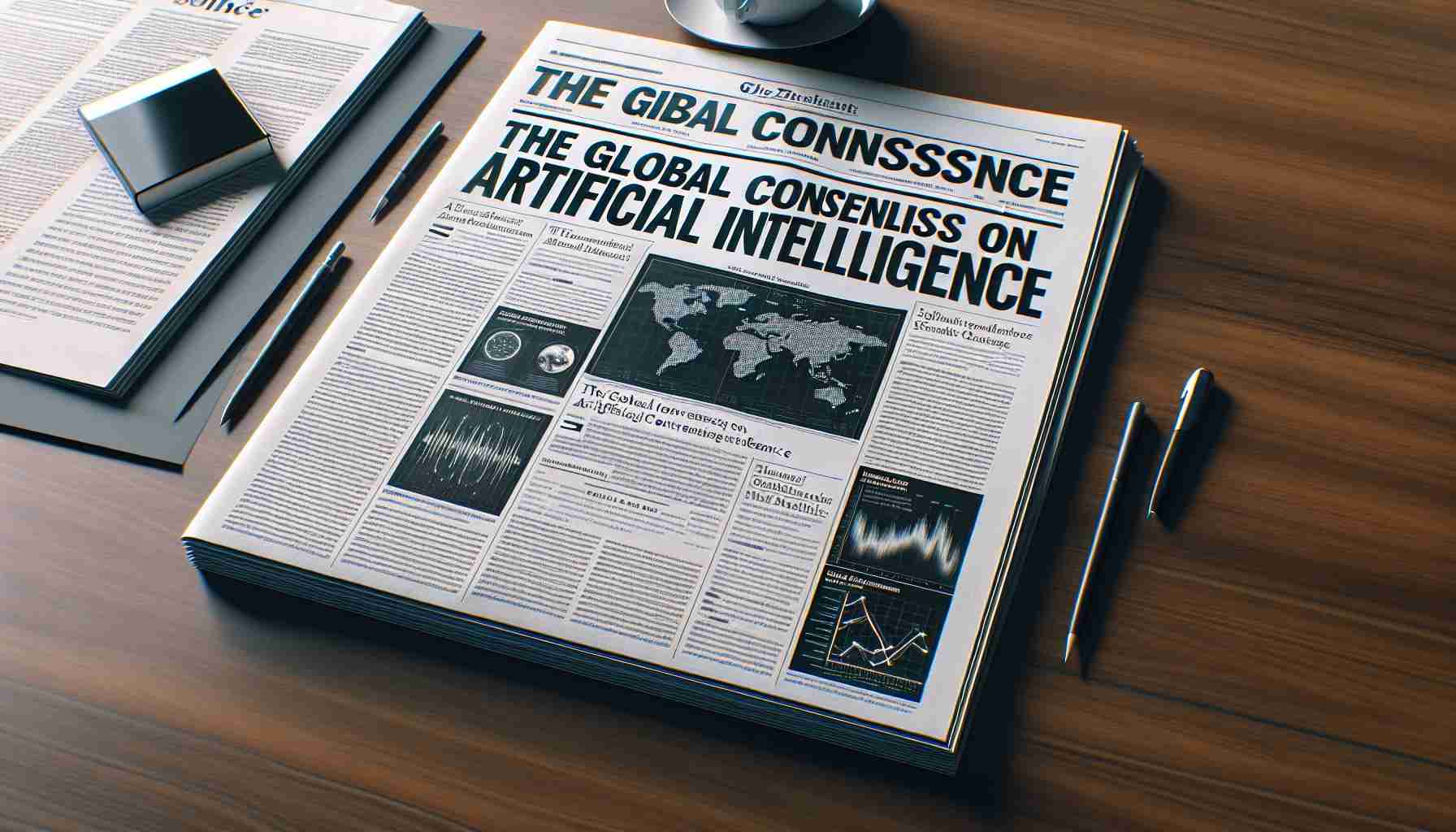The international community has taken a significant step forward in addressing the challenges and risks posed by artificial intelligence (AI). The United Nations General Assembly (UNGA) unanimously adopted the first-ever global resolution on AI, aimed at promoting personal data protection, monitoring AI for potential risks, and safeguarding human rights.
Proposed by the United States and co-sponsored by China and 121 other nations, this nonbinding resolution is the result of three months of negotiations and advocacy for stronger privacy policies. It reflects the collective effort of countries to navigate the fast-changing technological landscape while staying true to their shared values.
While briefing reporters, an administration official emphasized the importance of adhering to our values in the face of rapidly advancing technology. The official described the resolution as a landmark document, symbolizing the first-ever global consensus on AI. Its adoption signifies a recognition that without proper oversight, AI development could undermine democratic processes and result in job losses, among other concerns.
The resolution addresses the risks associated with the design, development, deployment, and use of AI systems. It highlights the potential dangers and emphasizes the need to protect human rights and fundamental freedoms in relation to AI. By acknowledging these risks, the resolution paves the way for collaborative efforts to tackle and mitigate them.
Negotiations were not without challenges, as there were “lots of heated conversations,” according to officials. However, active engagement with countries like China, Russia, and Cuba, known to have differing views on various issues, ensured a robust and inclusive process. The resolution strikes a balance by furthering AI development while maintaining a focus on protecting human rights.
This global consensus on AI follows another significant development in the field. In March, the European Parliament passed a groundbreaking law to regulate AI, making it the world’s first framework for managing this transformative technology. The regulations, agreed upon in negotiations with member states in December 2023, have now received endorsement from MEPs with an overwhelming majority of votes.
The law, which will be formally approved by the European Council in May, aims to address concerns over the potential risks and dangers associated with AI. The European Parliament’s proactive approach demonstrates a commitment to ensuring the responsible and ethical use of AI for the benefit of society.
With both the global consensus adopted by the UNGA and the European Parliament’s regulatory framework, the international community is signaling a clear intention to prioritize the safety, accountability, and protection of human rights in the era of AI. These developments lay the foundation for ongoing discussions, collaborations, and initiatives to shape the future of AI in a manner that aligns with our shared values and safeguards the well-being of individuals and societies.
Frequently Asked Questions (FAQ)
- What is the first global resolution on artificial intelligence?
- Who proposed the resolution?
- What are the concerns surrounding AI?
- What does the resolution aim to accomplish?
- What other significant development in AI regulation has occurred?
The first global resolution on artificial intelligence was unanimously adopted by the United Nations General Assembly (UNGA). It focuses on promoting personal data protection, monitoring AI for potential risks, and safeguarding human rights.
The resolution was proposed by the United States and co-sponsored by China and 121 other nations.
AI raises concerns such as the disruption of democratic processes, job losses, and potential threats to human rights and fundamental freedoms.
The resolution aims to address the risks associated with AI systems and foster a global consensus on responsible AI development while protecting human rights.
The European Parliament passed a pioneering law to regulate AI, becoming the world’s first framework for managing AI. This reflects a commitment to responsible and ethical AI use.
Sources:
– [United Nations General Assembly](https://www.un.org/ga/75/meetings_key)
– [European Parliament](https://www.europarl.europa.eu/doceo/home)
The adoption of the first-ever global resolution on artificial intelligence (AI) by the United Nations General Assembly (UNGA) reflects the growing recognition of the challenges and risks posed by AI. The resolution, proposed by the United States and co-sponsored by China and 121 other nations, highlights the need for personal data protection, monitoring AI for potential risks, and safeguarding human rights in the era of AI.
One of the main concerns surrounding AI is the potential disruption it could cause to democratic processes and the loss of jobs. Without proper oversight, there is a risk that AI development could undermine democratic values and result in job losses. The resolution acknowledges these concerns and recognizes the importance of protecting human rights and fundamental freedoms in relation to AI.
The regulation of AI is not limited to the United Nations. In March, the European Parliament passed a groundbreaking law to regulate AI, making it the world’s first framework for managing this transformative technology. The regulations aim to address the potential risks and dangers associated with AI and ensure its responsible and ethical use for the benefit of society. The European Parliament’s proactive approach demonstrates its commitment to prioritizing safety, accountability, and the protection of human rights in the development and use of AI.
These global developments in AI regulation lay the foundation for ongoing discussions, collaborations, and initiatives to shape the future of AI in a manner that aligns with shared values and safeguards the well-being of individuals and societies. By promoting responsible AI development and protecting human rights, these resolutions and regulations provide a framework for the industry to thrive while minimizing potential risks and ensuring the ethical use of AI technologies.
For more information, you can visit the sources below:
– United Nations General Assembly
– European Parliament
The source of the article is from the blog foodnext.nl

